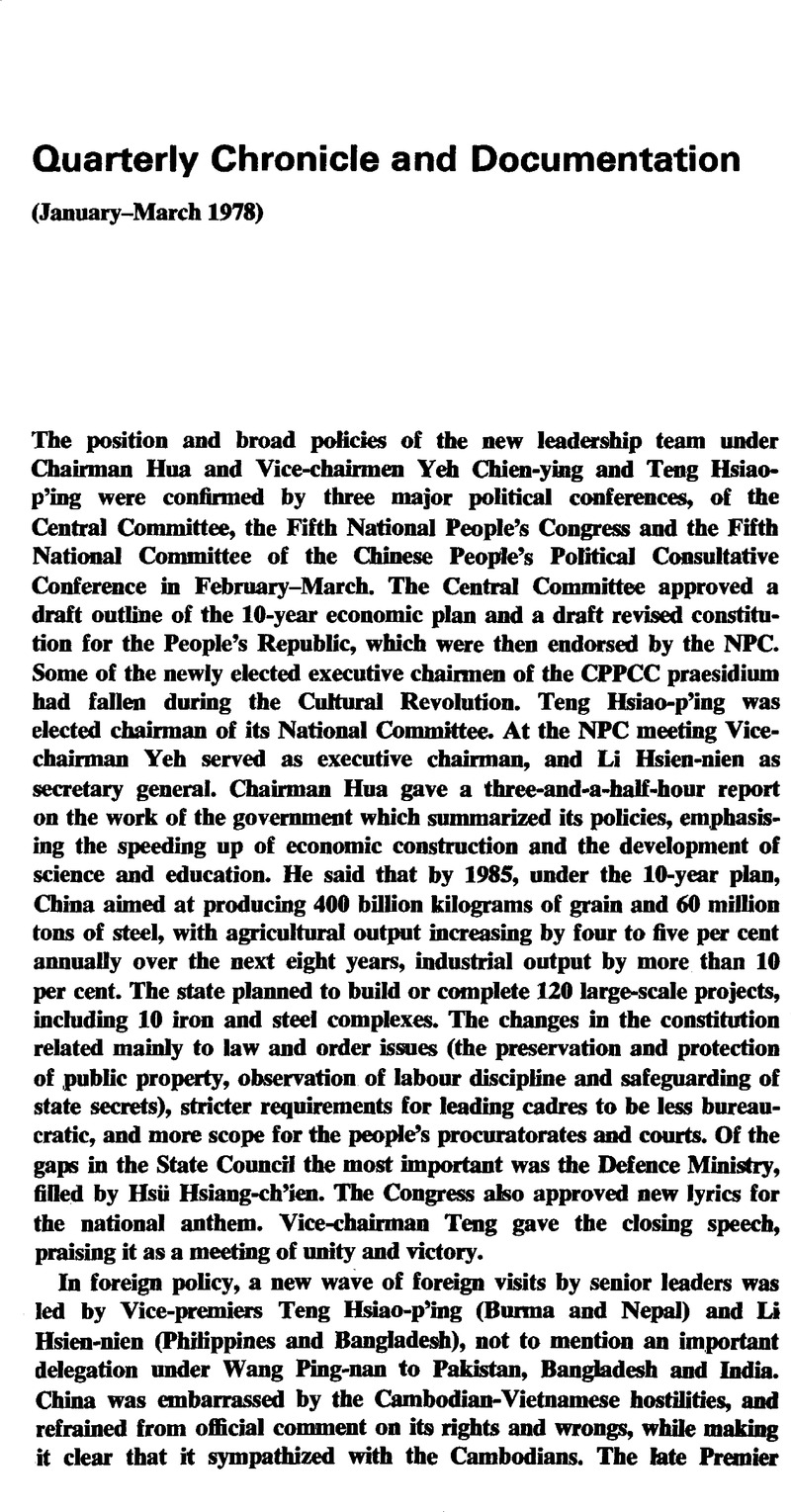No CrossRef data available.
Published online by Cambridge University Press: 17 February 2009

1. The “ten needs and need nots” are: need we or needn't we adhere to the Party's basic line; need we or needn't we have Party leadership; need we or needn't we rely whole-heartedly on the working class; need we or needn't we do well in production; need we or needn't we have rules and regulations; need we or needn't we have socialist accumulation; need we or needn't we apply the principle “from each according to his ability, to each according to his work”; need we or needn't we train the proletariat's own experts; need we or needn't we import new technology; and need we or needn't we stick to planned economy.Google Scholar
2. The “ten should and should nots” are: should we or shouldn't we uphold the absolute leadership of the Party over the army; should we or shouldn't we uphold proletarian Party spirit and oppose bourgeois factionalism; should we or shouldn't we carry on and develop the fine traditions of our Party and our army; should we or shouldn't we consolidate the army; should we or shouldn't we strictly observe revolutionary discipline and abide by rules and regulations; should we or shouldn't we form leading bodies that combine the old, the middle-aged and the young in accordance with the five requirements for revolutionary successors; should we or shouldn't we stress stability in the army; should we or shouldn't we carry out rigorous training and set strict demands; should we or shouldn't we adhere to a system under which our armed forces are a combination of the field armies, the regional forces and the militia; should we or shouldn't we be prepared for war.Google Scholar
3. 3. This refers to equalitarianism and arbitrary requisition of labour power, funds and materials, etc.Google Scholar